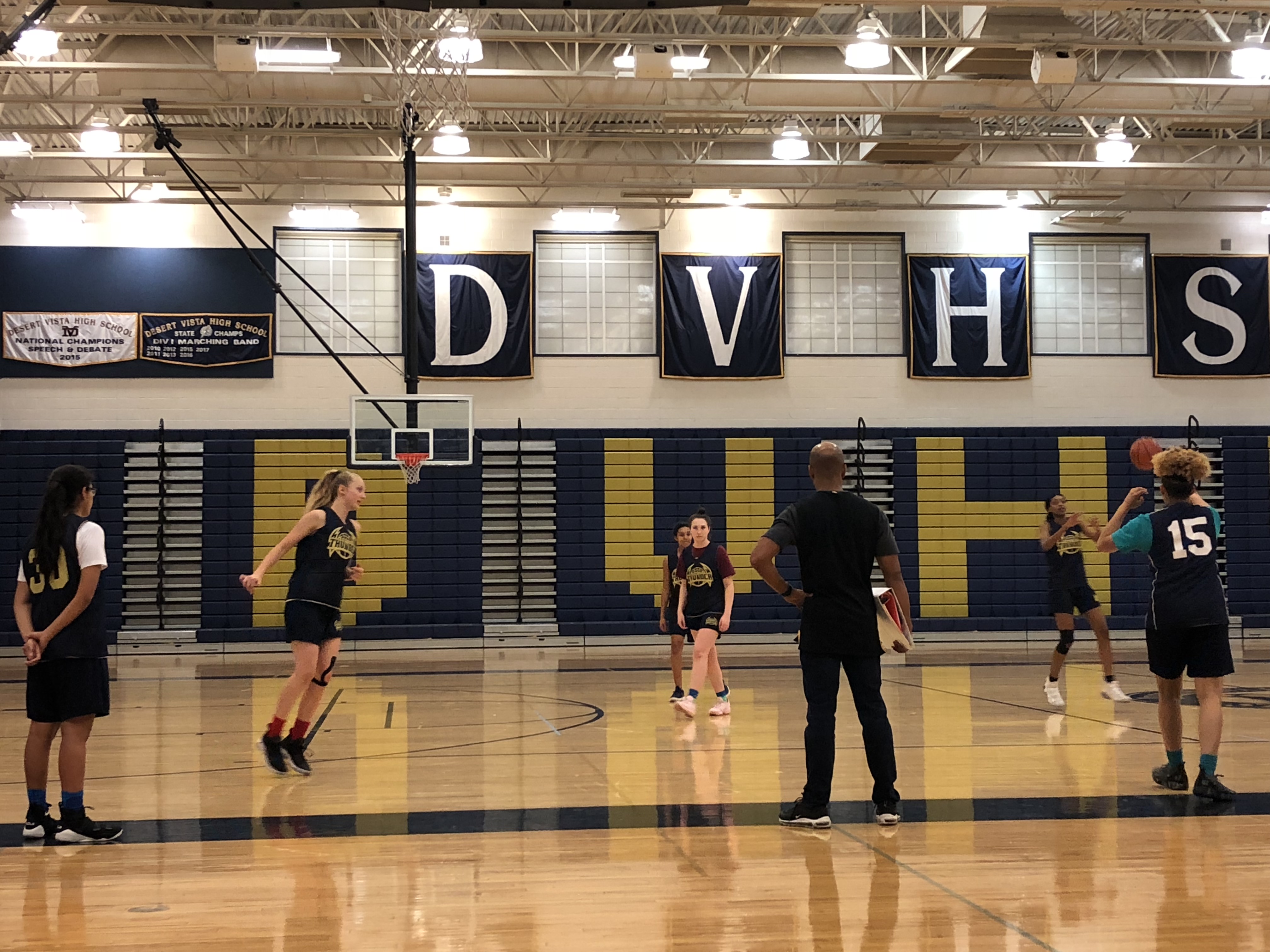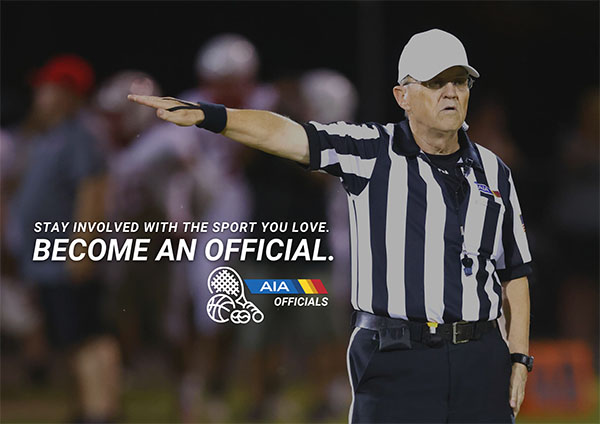Desert Vista girls juggle basketball and academics
November 27, 2018 by Karrissa Herrera, Arizona State University

Some are babysitters. All are fulltime students and one is even a hairdresser. How do high school student-athletes squeeze in time for basketball?
“I pretty much go with the flow. I’m pretty good at like getting stuff done. When I say I’m going to get it done I get it done,” says Desert Vista’s senior small guard Cameryn Harris.
Coach Ray Patche likes to invoke time management skills on the players. For instance, he likes to start and end practice at the set time.
“Otherwise us mismanaging their time is going to cause them to mismanage their time as well, and they’re only kids so it doesn’t help,” he says.
Practice starts exactly on time, so the team has to be ready with their shoes on, on time or they run.
The team also has a mandatory study hall and “Thunder Hour” to help them succeed in academics. “Thunder Hour” at Desert Vista is a period of the day where students work with peer tutors. Students and athletes who have Cs, Ds or Fs are sent to a particular classroom, library or see Patch and spend that time on what they’re struggling in.
“That’s a big thing we do all over school, but us particularly, the staff, try to work on whatever their deficiency is,” Patche says.
The teachers at Desert Vista accommodate student-athletes when they miss class due to games. Patche either gets the homework assignments from the teachers or tells the players which assignments to do online.
“Teachers are really, really good nowadays as far as getting to and responding to emails,” he says.
“I think our players here at DV do a good job at it [balancing life],” Patche says. “I think we have a good idea as far as what it means to be both a student and an athlete.”
Harris started playing basketball when she was in the fifth grade.
“I started playing because I was a little angry kid,” she says. “So, I just started playing basketball. It was something to take the edge off.”
Now she is a 16-year-old senior. Her mother moved her up in the second grade and has always pushed her to do well in school.
“My mom is all about academics,” Harris says. “Sometimes I try to make myself mediocre but she pushes me.” She takes mostly honors classes and has a 3.0 grade point average.
“During the week I try to get it [homework] done during school,” Harris says. “And I get out early because I have a short schedule, so I usually do homework right after school.”
Unlike many students, Harris doesn’t need to study for tests. “I feel like I prepare myself enough for tests that I don’t have to do big cramming or anything like that,” she says.
Harris is also in charge of taking care of her two 10-year-old siblings. She has to get her siblings ready for school, drop them off and pick them up after school.
She also cuts hair as a side job for extra money. “Hair has always interested me. I just started looking up videos and I convinced Aria [a teammate] to cut her hair,” Harris says. “I messed it up the first time. Now I just cut her hair, and I really love it. So, I mean it works.”
She also practices basketball on the weekend. She meets with trainers and focuses on her skills.
Sundays are dedicated to homework she isn’t able to finish during the week.
She stays after practice and shoots around to perfect her skills. There is always room for every athlete to improve.
“I’d say I’m balancing it pretty good.” Harris says.
Hannah Robbins, a shooting guard and point guard, is the only freshman on varsity.
She has been playing basketball since she was 4-years-old. Robbins scored double digits in the first tournament of her varsity debut season.
She aspires to be like Stephen Curry because she’s a shooter.
“He’s the greatest of all time, in my opinion, for shooting,” she says.
Basketball takes up five to six hours of her day, coming in close second to academics.
“I go to school and try to get my homework done in school and then I have practice right after and then I usually stay after practice to shoot around then I go home, shower, do the rest of my homework, eat dinner, go to bed,” Robbins says.
Big test or big game, which comes first? Robbins studies for a big test before she gets extra practice for a big game. That works out because her parents want academics to come first.
“I try to get my homework done, so that I can have more time to focus on basketball because I like it more. School is boring,” Robbins says.
She, too, practices basketball on the weekends. Robbins also has to take care of her little sister.
“I have to watch my sister while my parents are still at work and then I have to clean,” Robbins says.
Grace Nyakundi, is a 17-year-old senior forward who started playing basketball in seventh grade.
“I’m a late bloomer,” Nyakundi laughs.
She didn’t want to play basketball, but her mother made her try the sport. She ended up loving basketball.
“Not playing the sport is just hard to imagine,” she says.
Her parents say she’s not allowed to have a job because basketball and education are priorities.
“Without an education you can’t go to school and play ball,” Nyakundi says.
She does homework at school every chance she gets.
“When a teacher says ‘You can go on your phone’ that’s time to do homework,” she says. “Because you know outside of basketball you can’t just do homework, get home late, expect to cram all that and come to school trying to be mentally focused.”
One way she balances such a hectic life is with study hall. It is an immense help because she finishes homework she wasn’t able to finish during school.
She also has to take care of her 16-year-old sister who also attends Desert Vista. Nyakundi takes her to club sports and makes sure her sister gets her things done on time as well as manage her own time.
Some days Nyakundi’s sister has to stay with her after practice while she shoots and works on her game with Patche. During the weekend she also works on her weaknesses such as handling the ball and defense.
“I have not seen an average day in a while, because when you’re an athlete nothing is average. You just got to be on your high horse,” Nyakundi says. “You just got to go with what’s given to you, honestly.”


